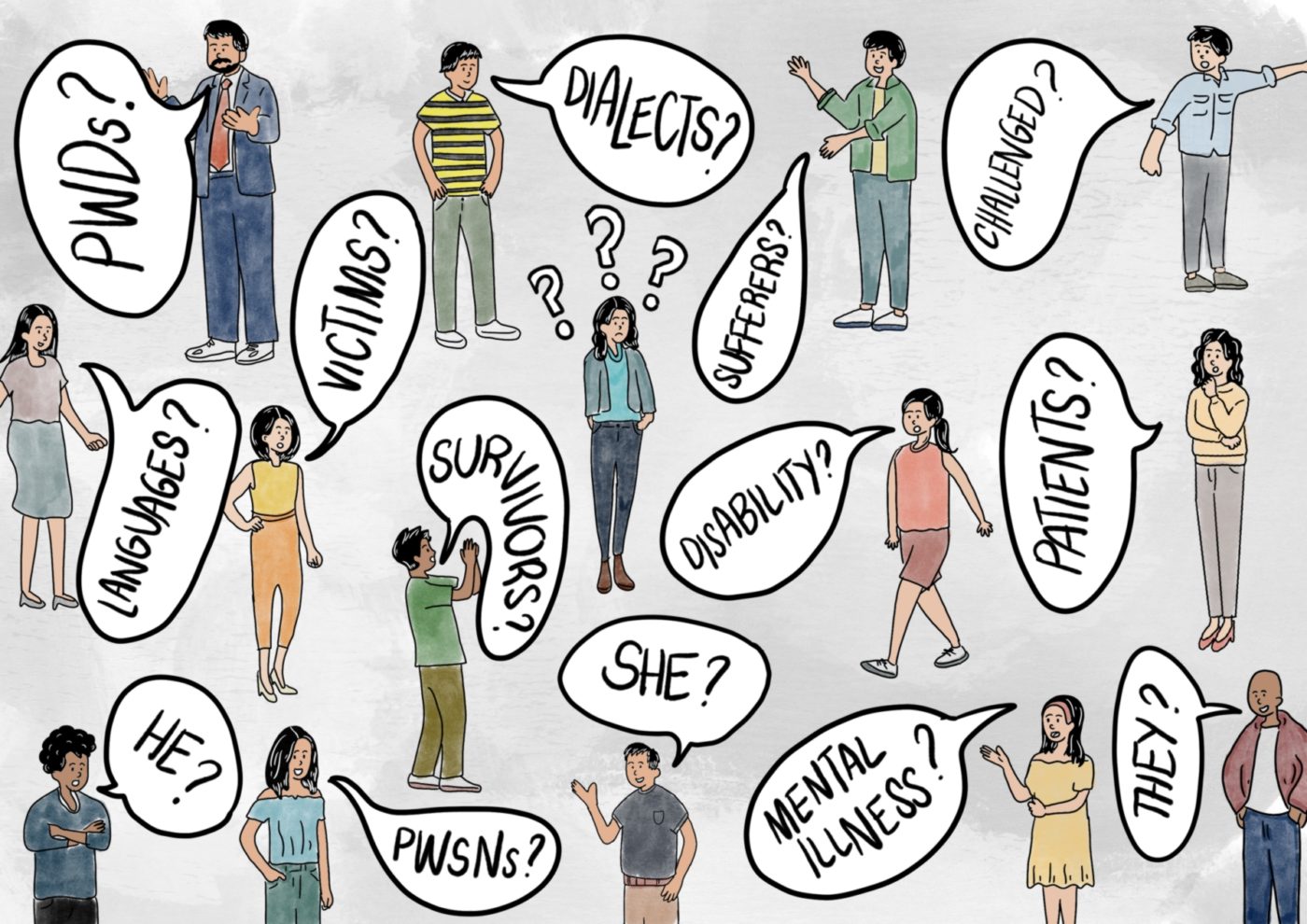
At the core of our Ignatian education is a call to be persons for others, manifested in socially-oriented activities. We have long lobbied for sectoral representation in the Sanggunian and seen the rise of its student rights’ commissions. We engage in community initiatives even outside Sector-Based Cluster organizations. We take to the streets and the internet to stand with victims of pressing issues. Hence, when it comes to inclusivity, we say that we walk the talk–yet how we talk about these causes has just as much of an impact.
As inclusivity transforms into a buzzword, the need for truly inclusive wording also grows more urgent. When ideas travel with a click, a slip of the tongue can quickly change public perception of an issue. More often than not, words wielded carelessly are to the detriment of underserved groups, those asserting themselves in the face of discrimination.
All in the name
There is a whole lexicon of how words are tied to social identity, of how they can both strengthen and erode it. However, the latter is the issue at hand, one that many of us unknowingly perpetuate. When we use words like “retard” or “invalid,” no matter how seemingly innocent, we lord over someone’s intellect or paint disabilities in a derogatory light. When we refuse to recognize preferred pronouns, we reject the strides that the LGBTQIA+ community has taken with regard to identity.
Yet, some would argue that these are simple words whose meanings are determined by the user’s intent. If one doesn’t mean to hurt, then the words cannot, either. Time spent on the minutiae of political correctness is, therefore, time wasted–or so the naysayers think.
In examining this, let’s go back to how political correctness is defined. In a new study from the University of California, Berkeley, participants defined the concept as “using language to seem sensitive to others’ feelings, especially those others who seem socially disadvantaged.” Perhaps this is another fault of wording, since “to seem sensitive” is a far cry from actually being sensitive.
And if we leave it at merely appearing sensitive–if we move forward with this self-centeredness–we run the risk of internalizing a harmful insensitivity towards others. Nonetheless, we should reframe political correctness as political consideration: Less about the user’s socially acceptable thoughts and more about the subjects they affect.
Sense and sensitivity
In other words, context is key. When it comes to medical conditions, there is an ongoing debate between identity-first or person-first language. Some people who have autism prefer to be called “autistic persons” rather than “persons with autism” to imply that they are not suffering from their condition. In this regard, mental health writer Natasha Tracy discusses how people should determine how they experience their own condition. If one says they suffer from it, rather than live with it, then they are free to say so.
Political consideration should be a tool for empowerment. When referring to cultural identities and ethnicities, we must resist derogatory or demeaning labels carried over from a history of oppression.
In the Philippines, people have referred to languages aside from Filipino as dialects for so long, which recently spurred a discussion on how this undermines the cultures of ethnic groups outside imperial Manila. For most of us who have lived here in the metro our whole lives, this was not a problem–until others pointed it out.
A framework called the Muted Group Theory states that language is shaped by dominant gender, race, or socioeconomic groups—which spells bad news for others who aren’t in the spotlight. Women, the LGBTQIA+, those in poverty, and other sectors are often victims of a biased lexicon. However, being aware of this phenomenon is a good first step towards countering it—and political consideration is one way to do so.
Politically considerate wording is a challenge to navigate at first try, but humbling ourselves to learn is the first step. When asking for preferences in terms of language, one should employ channels where subjects can express their identities without fear.
Aside from that, we call for the integration of these concepts into school curricula whenever these groups are discussed, or even through awareness campaigns that normalize political consideration. But above this, we cannot rely on others to begin our education. We, ourselves, have to be more aware of the words we use, more open to correction, and more willing to take an inclusive stand—because we have no right to deny anyone’s identity.







